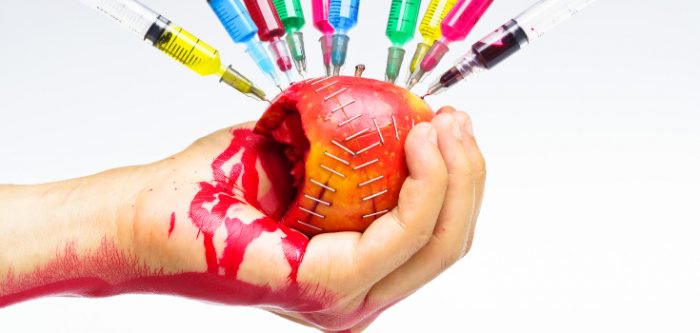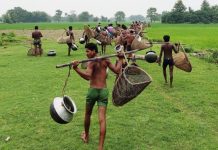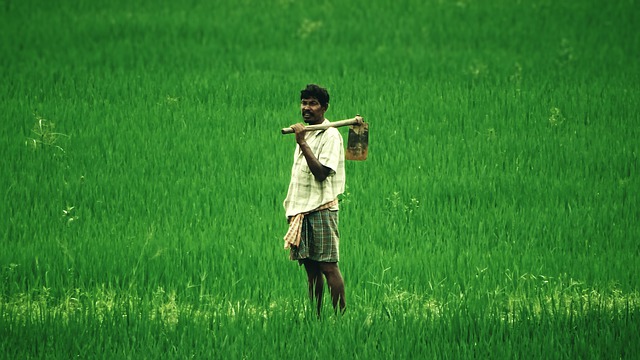FOOD
In recent months there has been growing confirmation of the suspicions that have existed for a long time that despite the fact that India is legally supposed to be a GM food free country, GM (genetically modified) foods have been increasingly sold to millions of unsuspecting consumers in India.
Bharat Dogra is a freelance journalist who has been involved with several social movements and initiatives.

[dropcap]S[/dropcap]everal scientists have put in years of dedicated work, overcoming the numerous hurdles put up by the strong lobbies of giant multinational companies and their collaborators in the path of unbiased research in this extremely important field, to prove the grave health risks of GM foods and crops. These are well-established by now.
One way in which GM foods have found large-scale presence in India is through imports in which the GM identity of products was shrewdly hidden. Recently when the Centre for Science and Environment tested 65 food products with the possibility of having GM ingredients in them, 32 per cent of the tested products were found to have these ingredients and further 80 per cent of them were imported products.
One serious worry is that these imported products with GM ingredients include some infant formulas including those meant for children with special vulnerabilities. Another worrying aspect is that perhaps the most important imports with GM ingredient consist of soyabean and canola oils which, apart from being consumed directly by consumers to cook their daily food, are also used by the food industry to prepare so many other foods. Hence the health risks become much wider.
If widely used foods with GM ingredients have been imported for several years in a country which is supposed legally to be free from GM foods then surely there is a serious failure on the part of regulation authorities. And this is precisely the reason why a strong, well-informed movement of citizens on food safety is now needed more than ever before.
A similar glaring neglect of safety aspects is visible in the context of domestic production of food products with a high possibility of GM ingredients. This is mainly in the form of cottonseed oil. As is well-known while permission has been denied to the cultivation of GM food crops in India so far, permission was given a long time back for the cultivation of a commercial GM crop in the form of BT Cotton. However it should have been realized by those looking after food safety aspects that while cotton was mainly a commercial crop it had also had a strong food component in the form of cottonseed oil which is used directly as a cooking medium particularly by the food industry (as it is cheaper) and in addition it is also used as an important ingredient frequently to prepare hydrogenated oil commonly ( and very wrongly) called vanaspati ghee in India. Hence a source of creating GM foods was unleashed domestically also without bothering at all about its safety aspects.
Thus it is clear that food safety aspects have been suffering from glaring negligence in matters where grave health risks for millions and millions of people are involved. To give another example, in recent years very huge amounts of pulses have been imported, particularly from Canada and Australia, which were heavily contaminated by a very hazardous herbicide and desiccant named glyphosate which is banned in several countries.
For a long time nothing was done about it and when some action was finally initiated it was mainly due to the efforts of some dedicated activists. Meanwhile millions of our consumers were exposed to very heavy residues of this highly hazardous chemical. While several pulses were involved, perhaps the most affected was yellow peas which are eaten habitually and almost on a daily basis with kulchas by working class people when they need a quick and relatively cheap lunch from street food vendors. In addition other staple pulses like red lentils ( masur) and moong were also affected seriously.
Issues such as these indicate that food safety is being neglected to an alarming extent particularly in cases where very powerful and resourceful interests are involved in the form of multinational companies and big importers. This is the reason why the country needs well-informed, honest and dedicated citizens to come together to form a strong food safety component. Of course several people and organizations are already doing very good work on various aspects of food safety. Several activists have been struggling against the powerful GM lobby for a long time to protect Indian agriculture from GM food crops. Some are trying to bring together organic farmers and consumers to strengthen the base for production and supply of healthy food.
However more work needs to be done to create a comprehensive food safety movement which can take an integrated view of various diverse aspects of food safety. We are entering a phase when food safety will be threatened by very powerful forces, and so this is also the time for strengthening the food safety movement of people.













